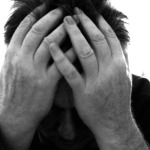Post By RelatedRelated Post
Your body shows signs of fatigue when you make major demands on it, for example at the end of a working day, after a sports activity, or the day after you go out to a night club. We don’t have to look far for an explanation for this normal tiredness, but what’s going on when somebody feels chronic fatigue for no particular reason?
Who is affected?
Today, internal medicine takes a state of fatigue into account when looking at health conditions and problems. If a patient complains of symptoms of abnormal fatigue, these could be linked to a condition that only a doctor can diagnose. Note that in cases of mental illnesses and disorders, fatigue is a common symptom and is taken into account when reaching a diagnosis.
When should you seek professional help?
In general, feelings of fatigue can be linked to a number of factors which may not be apparent at first sight. The first thing to do is to take a step backwards so as to get a better perspective, both on the person’s activities and on their emotional state. A person who is under unusual stress or is temporarily feeling depressed will experience feelings of fatigue. Think about seeing a doctor if the fatigue goes on and on without any obvious reason, and even having a good break is not enough to change this.
What might be behind a state of unexplained fatigue?
One of the main conditions in which this symptom appears is that of clinical depression. When all problems relating to diet or to a lack of physical activity have been considered, a doctor will carry out investigations for any infectious diseases, other than seasonal ones like flu or pharyngitis. Likewise, the doctor will check whether the symptom is linked to weakness of the immune system, in which case further tests will be needed (blood tests, urine tests, medical imaging, etc) to reach a more complete diagnosis. A long-standing lack of magnesium, vitamin D or iron can also lead to constant tiredness.






Leave a Comment